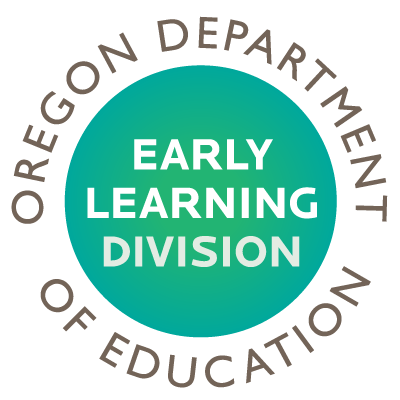Blog
How do instructional coaches help preschool teachers improve? The Early Learning Division asked colleagues at the Oregon State University’s Early Learning System Initiative (ELSI) to help answer that question. The result was new guidance addressing what coaches can do to effectively support quality teaching and learning, as shared in the new Oregon Coaching Competencies.
The ELD is committed to providing high-quality public preschool programs. By developing Coaching Competencies, the partnership clearly defined how coaches support early childhood educators. Coaches will receive training that empowers them to be even greater support for early educators in public programs such as Preschool Promise, Head Start, and OPK.
“The Professional Early Learning Systems team is dedicated to finding the next stage of equitable education and support to early learning educators across Oregon,” said Michael Connor, Training and Technical Assistance Systems Specialist at ELD. “We partnered with ELSI at OSU to make this happen. Their unit helped to expand and meet our research needs to create an enriching coaching program.”
Coaches play an important role in creating a genuinely effective early learning system. Coaches work with teaching teams to improve teaching and learning methods used by the early learning educators on those teams. They make connections with diverse groups to learn together and promote collaborative partnerships. The result means that coaches use effective coaching techniques with culturally responsive coaching methods to help early learning educators work better with the children and families they serve.
The Oregon Coaching Competencies describe effective early childhood education coaching:
- Use strategies to support culturally responsive coaching
- Use strategies to build collaborative partnerships
- Apply adult learning principles
- Use data to develop coaching goals
- Observe, provide feedback, and facilitate goal-focused reflection on effective practice
- Coaching for high-quality: developmentally appropriate, inclusive, culturally responsive, trauma-informed, and linguistically appropriate teaching practices.
The ELD and the Professional Early Learning Systems team thank ELSI, a partner in developing the Oregon Coaching Competencies. ELSI focused on the needs of early learning educators across the state with a year-long community feedback process. The information collected was then used to articulate a culturally responsive approach to coaching early educators. In conjunction with the competencies, ELSI mentors public PreK coaches and is developing a tiered coaching certification system to support effective coaching.



